Thai Elite Visa
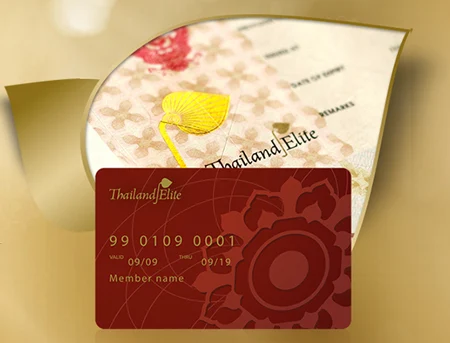
The Thai Elite Visa, officially rebranded in 2023 as the Thailand Privilege Visa, is not simply a long-stay visa—it is a government-authorized residency program founded on a contractual relationship between the applicant and the Thailand Privilege Card Co., Ltd. (TPC), a wholly state-owned enterprise. This visa operates under Section 17 of the Immigration Act B.E. 2522 (1979), which allows the Minister of Interior, with Cabinet approval, to grant foreigners residence outside normal immigration constraints.
What differentiates this visa from other residence categories is not only its legal foundation, but also the exclusive rights, administrative support, and lifestyle privileges it offers—delivered through a commercial framework rather than a humanitarian, employment, or family-based one.
II. Legal Basis and Governing Authority
A. Section 17 of the Immigration Act
This rarely invoked provision provides the legal grounds:
“In a special case, the Minister, with approval of the Cabinet, may permit any alien to stay in the Kingdom under any conditions he deems appropriate.”
Unlike typical visas that are issued under detailed regulations and quota systems (e.g., B, O, O-A, ED), the Elite Visa is issued by ministerial discretion through a standing Cabinet resolution, bypassing traditional legal restrictions.
B. Thailand Privilege Card Co., Ltd. (TPC)
-
Incorporated under Thai law as a state enterprise
-
Operates under the Tourism Authority of Thailand (TAT)
-
Its authority is based on Cabinet approval and TAT oversight, not immigration legislation alone
TPC is not a visa-issuing authority but acts as an intermediary—vetting applicants, collecting membership fees, and liaising with the Immigration Bureau, which ultimately issues the PE (Privilege Entry) Visa.
III. Membership Structure and Visa Duration
Following the program’s restructuring in October 2023, the Thailand Privilege Visa now offers four tiers:
| Tier | Fee (THB) | Validity | Privilege Points (Per Year) | Transferable | Family Eligible |
|---|---|---|---|---|---|
| GOLD | 900,000 | 5 years | 20 | No | No |
| PLATINUM | 1.5 million | 10 years | 35 | Yes (once) | Yes |
| DIAMOND | 2.5 million | 15 years | 55 | Yes (once) | Yes |
| RESERVE | 5 million | 20 years | 120 | Yes (exclusive) | Yes (invite-only) |
Each membership includes a five-year renewable visa, categorized as Non-Immigrant PE, with 365-day stay permissions per entry.
IV. Immigration and Bureaucratic Privileges
A. Entry and Reentry Rights
-
Multiple-entry privileges without the need for re-entry permits
-
Stay renewals processed internally in Thailand (no visa runs)
-
Visa validity up to 20 years (depending on tier)
B. Immigration Administration Support
TPC coordinates on behalf of members with the Immigration Bureau for:
-
90-day reporting (TM.47)
-
Change of address notification (TM.30)
-
Annual visa extension processing at OSSC (Bangkok) or provincial Immigration
C. Fast-Track Services
-
Dedicated immigration fast lanes at all major Thai international airports
-
Personalized assistance upon arrival and departure
V. Administrative, Legal, and Governmental Benefits
Elite Visa members receive concierge-level support across several government functions:
| Function | Assistance Provided |
|---|---|
| Driver’s License | Appointment booking, form assistance, document translation, transport for higher tiers |
| Thai Bank Account Opening | Certification letters and introductions to partner banks |
| Taxpayer Identification (TIN) | TPC assists eligible tax residents with Revenue Department registration |
| Document Legalization | Coordination with translation and notarial services |
These services do not replace legal compliance, but they simplify navigation of Thai bureaucracy—particularly for non-Thai speakers.
VI. Privilege Points and Lifestyle Services
Unlike standard immigration pathways, the Elite Visa program integrates exclusive lifestyle benefits, governed by a point redemption system:
| Category | Examples of Redeemable Services |
|---|---|
| Transport | Airport limousine pick-up/drop-off, inter-city transfers |
| Healthcare | Executive checkups at hospitals like Bumrungrad and Samitivej |
| Hospitality | Five-star hotel stays, room upgrades, premium dining access |
| Golf & Spa | Free rounds at selected golf clubs, spa and wellness treatments |
| Shopping & Events | VIP invitations, private retail experiences, cultural event access |
Points reset every year and are non-transferable. The availability of services is subject to TPC’s partner agreements and booking limits.
VII. Taxation and Financial Planning Implications
A. Tax Residency
An Elite Visa holder becomes a Thai tax resident only if physically present in Thailand 183 or more days per year. Tax residents must:
-
File an annual Personal Income Tax Return
-
Declare income remitted to Thailand during that calendar year
B. Offshore Income (Revenue Code, Section 41)
Foreign income is only taxable if remitted to Thailand in the same tax year it is earned.
-
Income kept abroad and remitted in subsequent years is not taxable
-
This allows for legal tax deferral for individuals with offshore earnings or investments
Elite Visa holders are well-positioned for residency-based tax planning, particularly retirees, digital nomads, and investors with offshore income.
VIII. Legal Restrictions and Limitations
A. Prohibition on Employment
The PE Visa does not grant work authorization under Thai law. Engaging in employment without proper documentation violates:
-
Section 37(1) of the Immigration Act
-
The Alien Working Act B.E. 2551
Violations may lead to:
-
Visa revocation
-
Fines and deportation
-
Future immigration bans
This includes volunteer work, consulting, or managing a business, even without direct compensation.
B. Land and Business Ownership
Elite members are still foreign nationals and thus subject to standard legal restrictions:
-
No land ownership permitted under the Land Code B.E. 2497
-
May own condominium units under the 49% foreign quota
-
May lease land or property for up to 30 years, with optional renewals
-
May invest in Thai companies, subject to restrictions under the Foreign Business Act
IX. Revocation and Compliance
Termination Grounds
| Cause | Consequence |
|---|---|
| Criminal conviction (Thailand or abroad) | Immediate cancellation, blacklist under Immigration Act |
| Immigration violation (overstay, false reporting) | Termination of visa and contract |
| Misrepresentation in application | Nullification of visa and loss of privileges |
| Unauthorized work or business activity | Revocation and entry ban |
Membership fees are non-refundable, even in cases of termination.
X. Application Process
Eligibility
-
Minimum age: 20 years
-
Valid passport (minimum 6 months)
-
No criminal record (especially drug or immigration offenses)
-
No blacklist or overstay record in Thailand
Procedure
-
Submit application via TPC or authorized agent
-
Background check by Immigration Bureau and Royal Thai Police
-
Receive conditional approval and invoice
-
Pay full membership fee
-
Welcome letter and member ID issued
-
Visa issued at:
-
Thai Embassy (if applying abroad), or
-
One Stop Service Center (if in Thailand)
-
Processing time: Typically 30–90 days
XI. Conclusion
The Thailand Elite Visa is a legal residency instrument that bridges immigration and state-sponsored concierge services. It is unique in that it provides immigration stability, bureaucratic support, and premium lifestyle benefits under a contractual, non-quota-based model.
It is best suited for:
-
Retirees who wish to avoid income or deposit requirements
-
Remote professionals and digital nomads (with offshore income)
-
Frequent travelers who value airport and immigration convenience
-
High-net-worth individuals seeking administrative ease in Thailand
However, the visa offers no work rights, no path to permanent residency or citizenship, and no exemption from standard foreign ownership restrictions.
When used within the legal limits, it offers an exceptionally stable and low-maintenance residency solution, backed by Cabinet authority and institutional infrastructure.
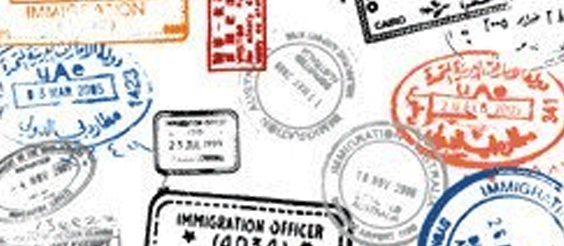
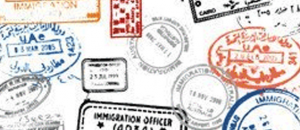 If you have a work permit in Thailand or you have a
If you have a work permit in Thailand or you have a 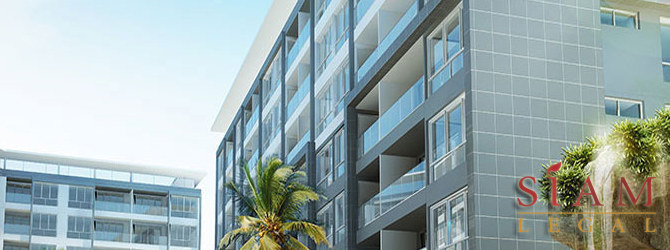
 If you are going to retire in Thailand then consider for a minute what would be needed for your visa. Firstly you need to meet 2 set of requirements. The first is an age requirement and the next are the financial requirements to retire. The first requirements tro obtain the Retirement Visa is the easiest. You need to firstly apply at a Thai embassy for the OA visa and this visa is valid for 3 months once you enter Thailand. This is what would be needed:
If you are going to retire in Thailand then consider for a minute what would be needed for your visa. Firstly you need to meet 2 set of requirements. The first is an age requirement and the next are the financial requirements to retire. The first requirements tro obtain the Retirement Visa is the easiest. You need to firstly apply at a Thai embassy for the OA visa and this visa is valid for 3 months once you enter Thailand. This is what would be needed: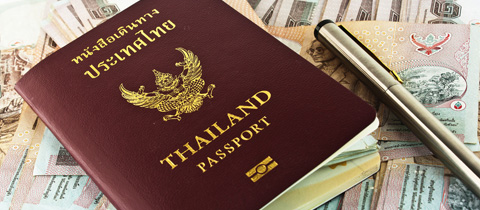
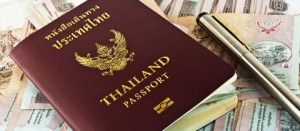 When you are in Thailand you must much like Thai citizens carry your passport on you at all times. The very same goes with work permits. The work permit and passport must be with you at all times. An interesting note that when the local newspapers asked Phuket Immigration about the issue after a number of foreigners had been arrested in Phuket for not having their passports on them during the raid on the nightclub.
When you are in Thailand you must much like Thai citizens carry your passport on you at all times. The very same goes with work permits. The work permit and passport must be with you at all times. An interesting note that when the local newspapers asked Phuket Immigration about the issue after a number of foreigners had been arrested in Phuket for not having their passports on them during the raid on the nightclub.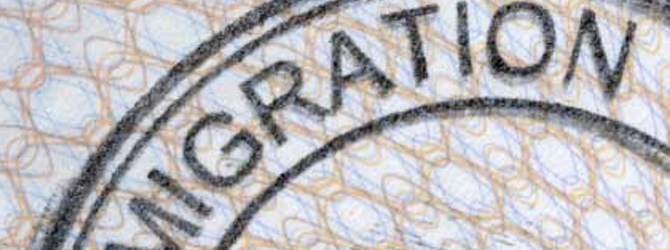
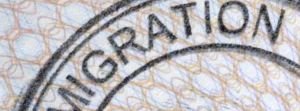 If you are married to a Thai or have a Thai child then you can apply for the 3 month Thai “O” Visa at a Thai embassy. The
If you are married to a Thai or have a Thai child then you can apply for the 3 month Thai “O” Visa at a Thai embassy. The